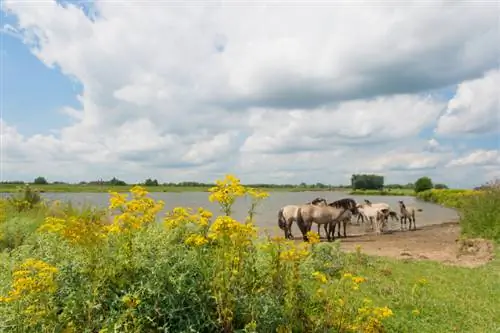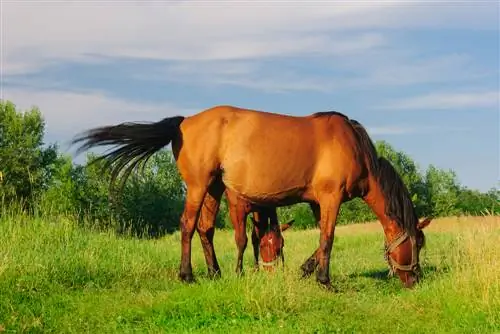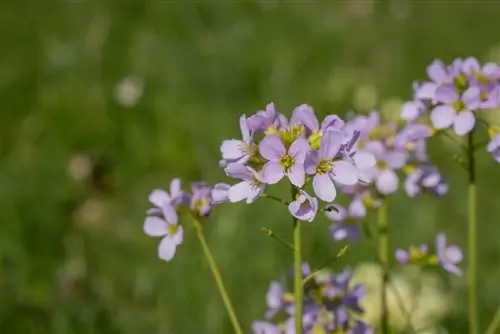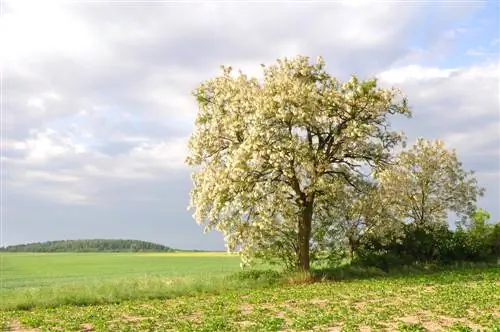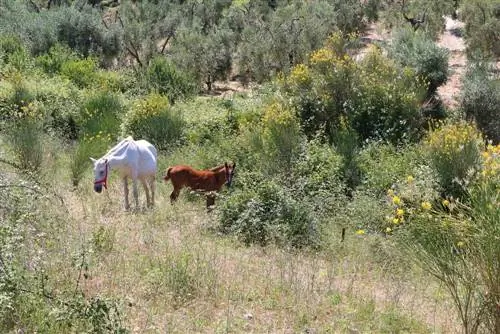- Author admin [email protected].
- Public 2023-12-16 16:46.
- Last modified 2025-01-23 11:22.
Are you wondering whether you can plant cherry laurel in the horse pasture or perhaps even offer your horses some cherry laurel to eat? In our guide you will find out whether cherry laurel is poisonous to horses.

Is cherry laurel poisonous to horses?
Cherry laurel is poisonous to horses because all parts of the plant contain prunasin, a glucoside containing hydrogen cyanide. Poisoning can cause salivation, irritation of mucous membranes, diarrhea, agitation, breathing problems and even death. Horses should not graze near cherry laurel.
Is cherry laurel poisonous to horses?
Cherry laurel is poisonous to horses. This also applies to most other animals as well as us humans. All parts of the laurel cherry plant containPrunasin, a glucoside containing hydrogen cyanide. The toxin is present in particularly high concentrations in the leaves and seeds.
How does horse become poisoned with cherry laurel?
Cherry laurel poisoning occurs in horses if theyhave eaten too large quantities of the plant. Hungry horses may not even be put off by the very bitter taste of the leaves. Through intensive chewing,Prussic acid is released in the ungulate's stomach This ultimately triggers symptoms of poisoning.
How can you recognize cherry laurel poisoning in horses?
Poisoning with cherry laurel in horses can be recognized by the followingSymptoms:
- increased salivation
- Mucosal irritations
- Stomach and intestinal disorders (diarrhea)
- Arousal
- Breathing problems up to respiratory paralysis (if severely poisoned)
- Miscarriage (in a pregnant mare)
Caution: If a horse eats0.5 to one kilogram of cherry laurel leavesat once, this can lead todeath.
What to do if the horse has eaten poisonous cherry laurel?
If your horse has eaten poisonous cherry laurel, call aveterinarian immediatelyUntil the vet arrives, you should encourage the horse to drinklots of waterIf necessary, enrich this with a little honey. You can also administermedical activated carbon. This binds the toxins and may help prevent worse things from happening.
Important: Water and activated charcoal are not a substitute for the prompt intervention of a veterinarian!
Tip
Never let horses graze near cherry laurel
Since cherry laurel is undoubtedly highly toxic to horses, you should never let your ungulates graze near such a plant or even feed them parts of the cherry laurel plant. The invitingly sweet tasting fruits are also taboo.


